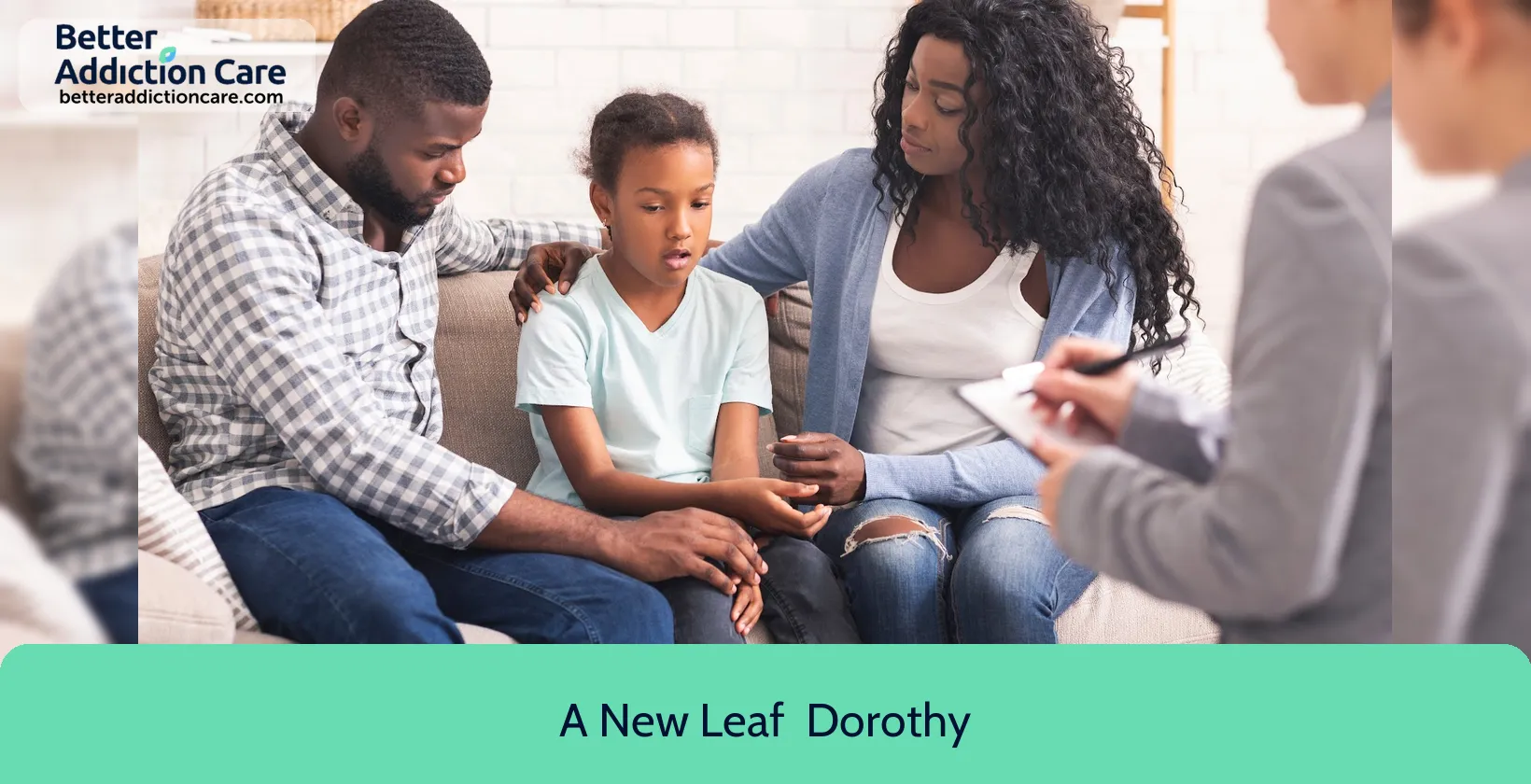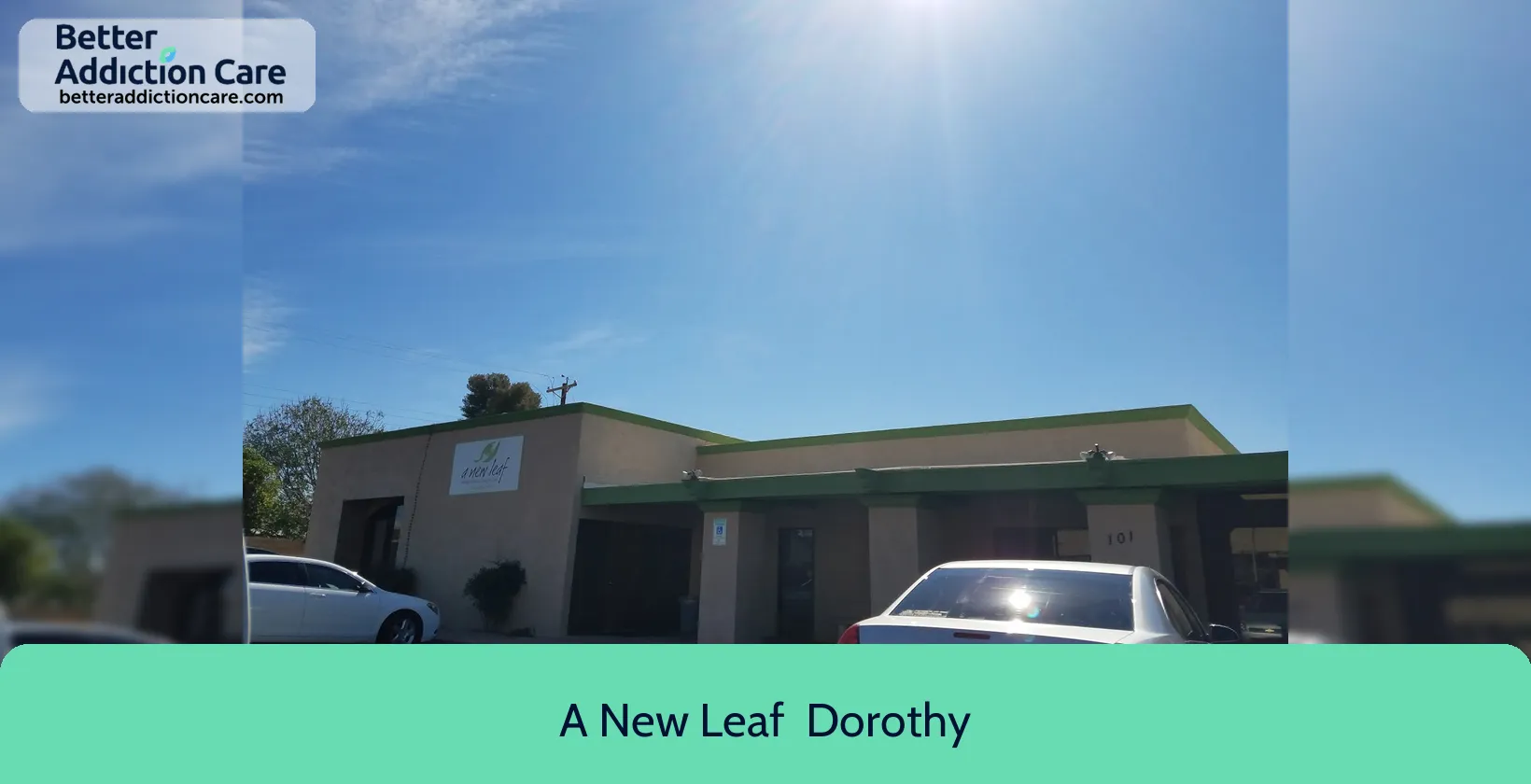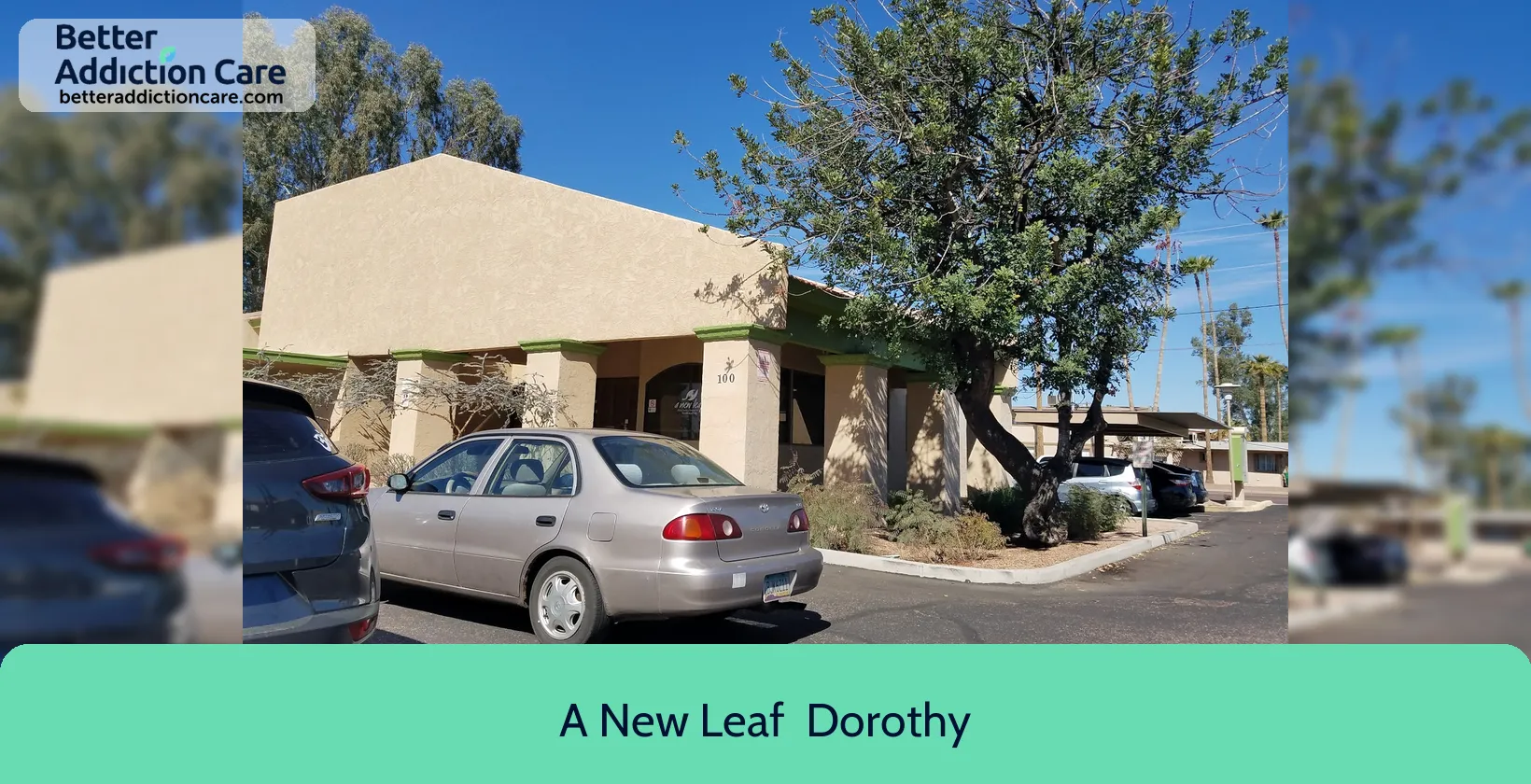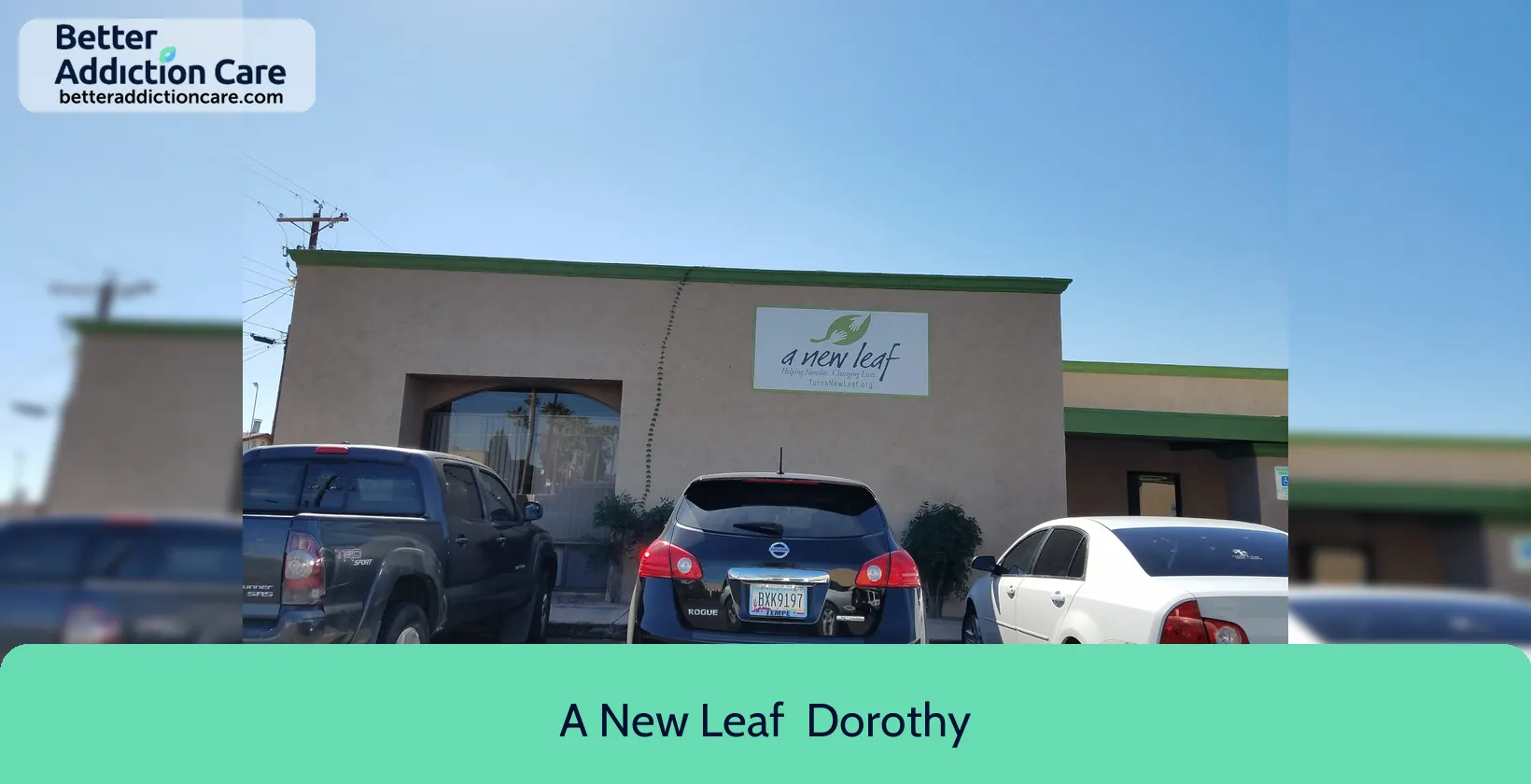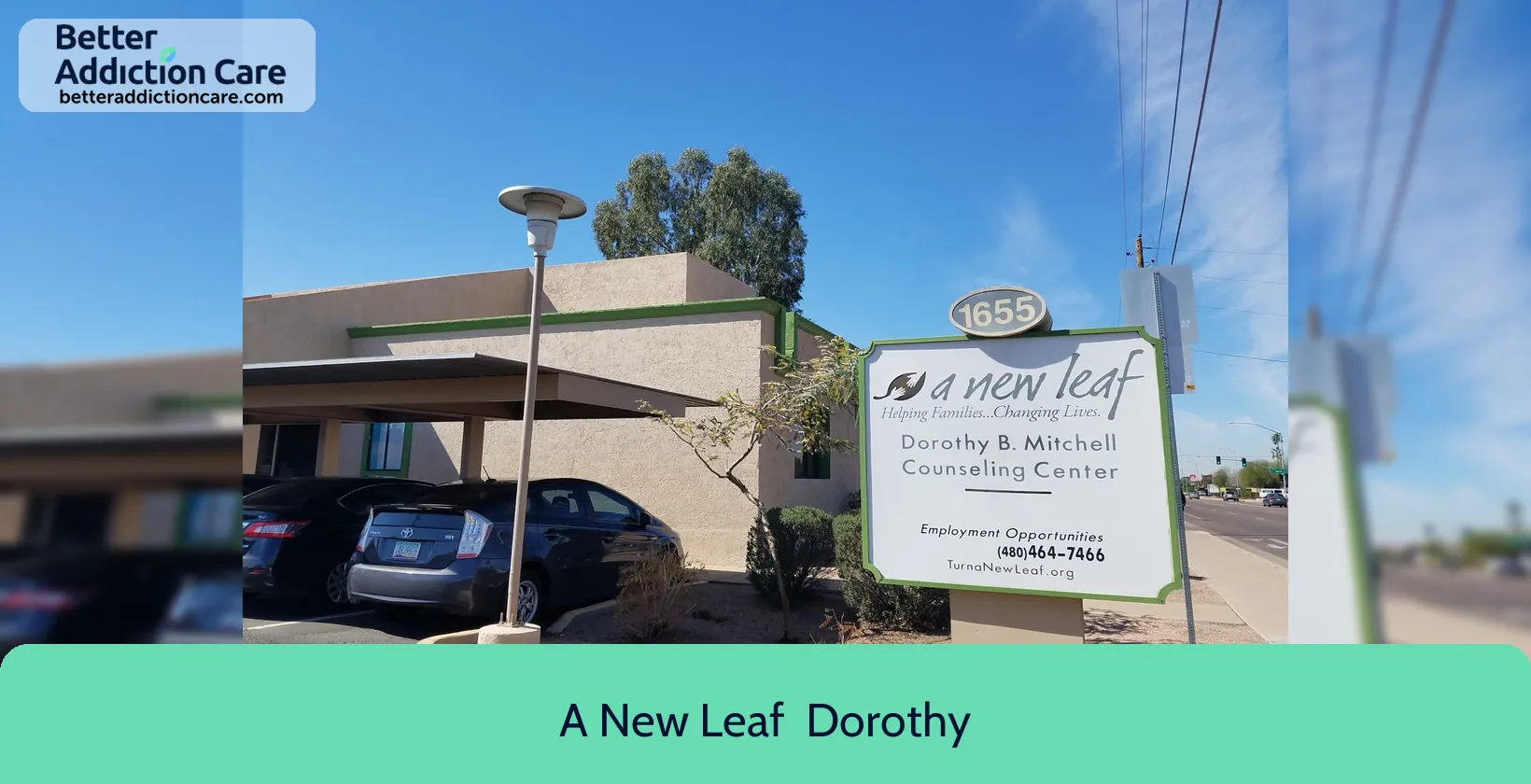Overview
A New Leaf - Dorothy B. Mitchell Counseling Center is a substance abuse treatment center for people seeking treatment near Maricopa County. As part of their treatment modalities for recovery, A New Leaf - Dorothy B. Mitchell Counseling Center provides family counseling, individual psychotherapy, and cognitive behavioral therapy during treatment. A New Leaf - Dorothy B. Mitchell Counseling Center is located in Mesa, Arizona, accepting medicaid for treatment.
A New Leaf - Dorothy B. Mitchell Counseling Center at a Glance
Payment Options
- Medicaid
- State corrections or juvenile justice funds
- Cash or self-payment
- State welfare or child and family services funds
- Sliding fee scale (fee is based on income and other factors)
Assessments
- Comprehensive mental health assessment
- Comprehensive substance use assessment
Age Groups
- Children/adolescents
Operation
- Private for-profit organization
Highlights About A New Leaf - Dorothy B. Mitchell Counseling Center
6.68/10
With an overall rating of 6.68/10, this facility has following balanced range of services. Alcohol Rehabilitation: 8.00/10, Drug Rehab and Detox: 6.00/10, Insurance and Payments: 6.00/10, Treatment Options: 6.73/10.-
Alcohol Rehabilitation 8.00
-
Treatment Options 6.73
-
Drug Rehab and Detox 6.00
-
Insurance and Payments 6.00
Treatment At A New Leaf - Dorothy B. Mitchell Counseling Center
Treatment Conditions
- Mental health treatment
- Substance use treatment
- Co-occurring Disorders
Care Levels
- Outpatient
Treatment Modalities
- Family counseling
- Individual psychotherapy
- Cognitive Behavioral Therapy
- Dialectical Behavior Therapy
- Group counseling
Ancillary Services
Languages
- Sign language services for the deaf and hard of hearing
- Spanish
Special Programs
- Children/adolescents with serious emotional disturbance (SED)
- Clients who have experienced trauma
Contact Information
Read our Most Recent Article About Drug Addiction
DISCLAIMER: The facility name, logo and brand are the property and registered trademarks of A New Leaf - Dorothy B. Mitchell Counseling Center, and are being used for identification and informational purposes only. Use of these names, logos and brands shall not imply endorsement. BetterAddictionCare.com is not affiliated with or sponsored by A New Leaf - Dorothy B. Mitchell Counseling Center.
